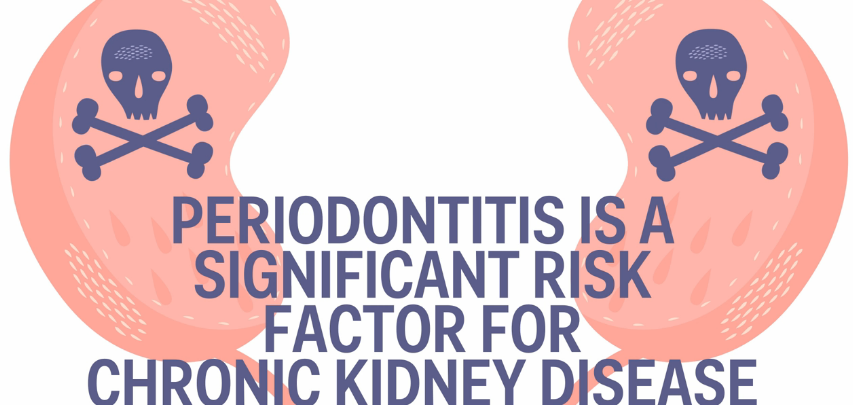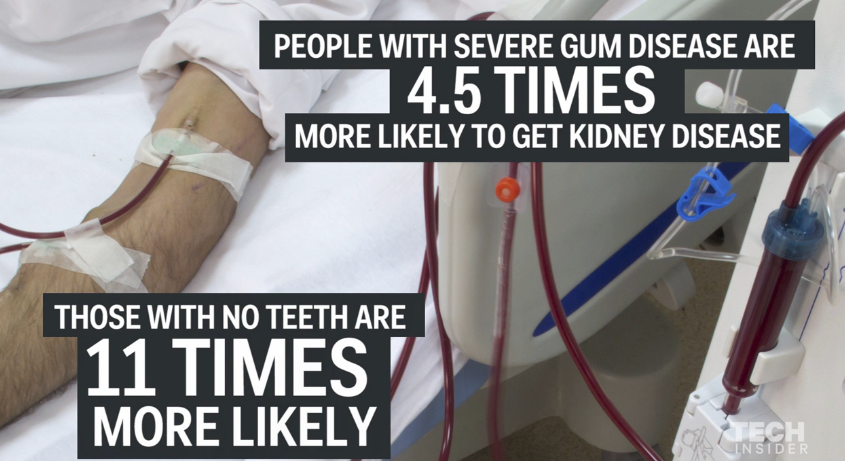Here's What Happens When You Stop Flossing

By:
Nobody really likes to floss, even though dentists recommend doing it at least once a day. That's because more than half of Americans don't floss daily, according to a 2014 study by Delta Dental, and it's easy to see why: It's time consuming, it's painful, and, sometimes, it causes you to bleed from the gums.
But as awful as flossing may feel, it is essential to your physical well-being — and that goes beyond your dental health. The consequences of neglecting it are worse than you may realize. Here's what failing to floss means for your health.
1. You get tartar buildup.
If you don't regularly floss the plaque off your teeth, it can build up below your gum line and turn into tartar, which can lead to periodontal diseases such as gingivitis and periodontitis. Periodontal diseases are infections in the structures surrounding the teeth, such as the gums. Half of all people suffer from periodontal diseases, which can cause tooth decay and even tooth loss, periodontist Joan Otomo-Corgel told NPR last year.
If you smoke and don't go to the dentist for more than 10 years, your tartar buildup and mouth could look a little something like this on your first visit back:
2. Your breath will be awful.
Many people fear having bad breath, clinically known as halitosis. But if you fail to brush your teeth or to floss properly, expect it. If you don't thoroughly clean out your mouth after eating, the food can leave a lingering smell, and foul-smelling bacteria can build up. You can brush your tongue to reduce your chances of having this problem, but to be really sure, you should also floss once a day and brush your teeth twice a day.
3. You can increase your risk of getting chronic kidney disease
People with periodontal diseases are at a higher risk of developing chronic kidney disease, a 2008 study in the American Journal of Kidney Disease found. People with no teeth are more than 10 times likelier to have this condition. A recent video by Tech Insider highlighted this risk as well:
 Tech Insider - techinsider.io
Tech Insider - techinsider.io
 Tech Insider - techinsider.io
Tech Insider - techinsider.io
4. Your teeth will look yellow.
Drinking coffee and failing to brush are significantly responsible for staining your teeth. Flossing also plays a role in the color and appearance of your chompers: It removes food particles and bacteria, and in doing so, it improves the health of your gums, according to oral hygiene brand Oral-B. Your teeth will look better if you have good gum health.
When it comes to maintaining a white smile, "skipping the floss is not a good idea," according to Rusnak Family Dentistry in Virginia. "Removing the buildup between the teeth helps your smile appear whiter and cleaner," the practice's website said.
Maintaining dental health is important for your overall health. So the next time you feel too exhausted to thoroughly brush or floss your teeth for a few minutes, consider the time-consuming, potentially fatal, and repulsive alternatives.
[H/T Someecards]
